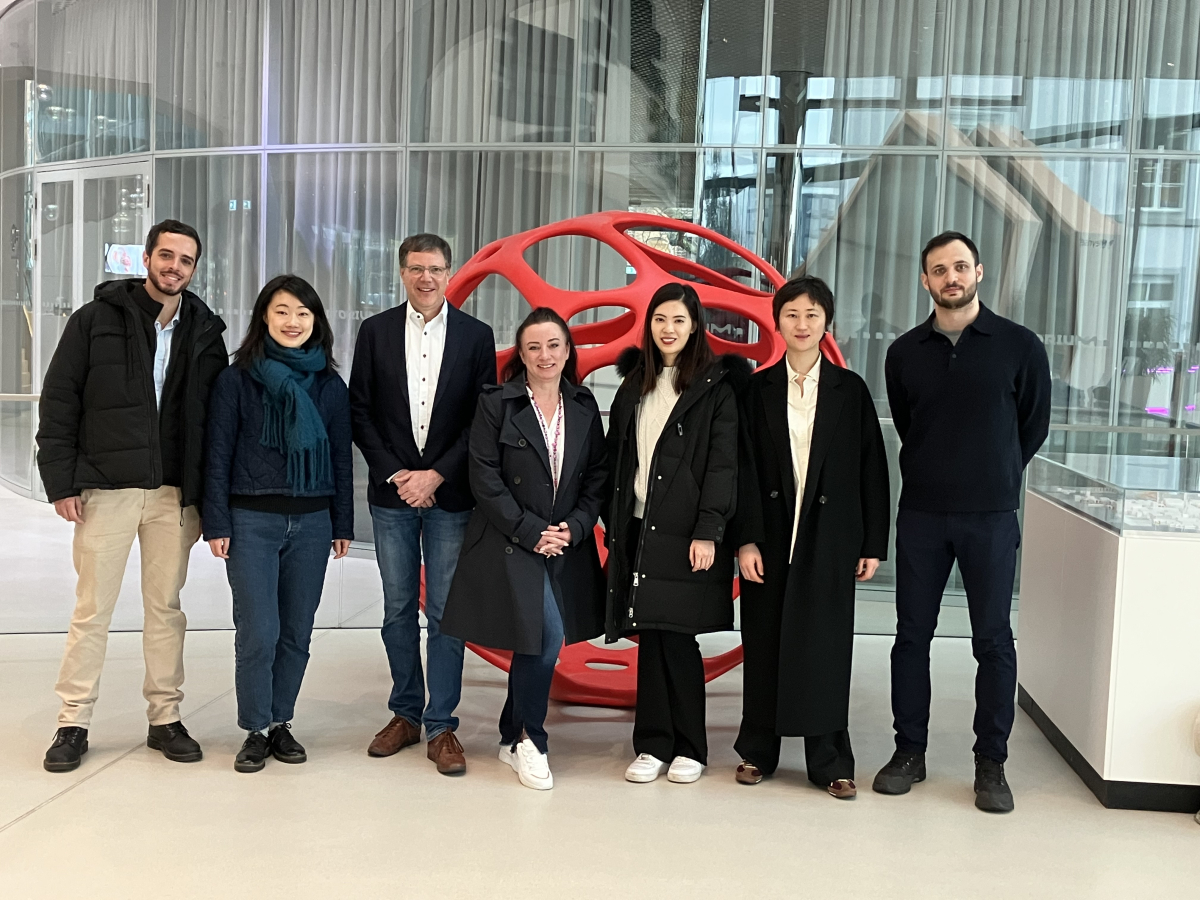MBA Capstone: ESMT students team up with Merck

Real-world projects, real impact
More than just a practical exercise, the capstone is a strategic opportunity to diversify your professional skill set, particularly for those exploring new industries or functional roles.
Capstone projects are arranged through ESMT’s Career Services team, leveraging our extensive network of corporate partners. For students with entrepreneurial ambitions—especially members of the Entrepreneurship Club—options include working with local startups on innovation projects or advancing their own ventures with guidance from ESMT’s expert faculty.
Recently, we caught up with Full-time MBA (FTMBA) students from the Class of 2025, Roni Li and Abby Wang, who completed a three-month capstone project with global pharmaceutical leader Merck. They shared their reflections on the experience, from industry insights to personal growth.
About Merck and the capstone focus
Founded in 1668 and headquartered in Darmstadt, Germany, Merck is a leading global technology company specializing in three business areas: life sciences, pharmaceuticals and healthcare, and electronic technology.
We worked on a highly strategic topic: evaluating the non-financial value of a pharmaceutical company in a Post-Marketing Study (PMS). We developed a structured evaluation model to measure the value of these studies across multiple dimensions, including Patient Centricity, Product Knowledge, and more to support companies’ strategic decision-making.
The core objective of the project was to establish a value-based model for Medical Affairs that supports investment decision-making by comprehensively analyzing and evaluating the value points of Medical Affairs Studies.
Why did you choose to participate in the Merck program?
Roni: I chose to participate in the Merck program for two main reasons.
Firstly, I previously worked in clinical trials in the healthcare industry, so I was drawn to the subject matter of the Merck program.
Secondly, the program involved data analysis and model building, which are areas I’m interested in and wanted to learn more about. It was a great opportunity to combine my professional background with data-driven analytical skills, making it a very valuable learning experience.
Abby: I evaluated the program mainly from two aspects: the industry and the subject:
- Industry: My background is primarily in retail e-commerce and although there were no projects in that area this year, I saw the healthcare industry as a new and exciting challenge.
- Subject: For my specialization courses, I tend to focus on strategic leadership and the Merck program offered a platform to practice and apply relevant knowledge. I’m also fascinated by intangible asset valuation, so this was a great fit.
What were your main responsibilities in the project?
Abby: My part of the project was centrally focused on the impact of the Medical Affairs Study (MAS) on drug risk-benefit assessment and on drug development strategies. It involved building a structured qualitative assessment framework to analyze value points of the MAS for long-term drug development.
Roni: I was responsible for researching and refining specific dimensions of the model, including data analysis, metric definition, and scoring criteria. Through collaborative teamwork, we continue to optimize the model to make it more practical and actionable.
What were your key takeaways?
Roni: The program gave me a better understanding of Medical Affairs. Merck is incredibly generous—they invited us to their headquarters in Darmstadt for an in-person seminar and gave us a tour. What impressed me was the passion and enthusiasm of Merck's employees, and the atmosphere in the Innovation Center which was particularly striking.
This gave me a better understanding of how a large pharmaceutical company drives innovation. Most importantly, I met a great group of people who work well together in a team environment, which was a very rewarding experience.
Abby: The medical industry is a new challenge for me. During the project, I experienced the process of understanding a new industry quickly from 0 to 1 and practiced my ability to use structured thinking to build a knowledge system, as well as to communicate with industry experts in depth.
The highlight was the workshop organized by the project team at Merck Group headquarters, where nearly 30 industry experts were invited to have in-depth discussions on our model. The event was very successful and highly recognized by the client and the experts.
This capstone project was our last learning task before graduation and being able to contribute something meaningful—while receiving overwhelmingly positive feedback—was the best affirmation of our efforts and learning. It truly felt like the perfect conclusion to our MBA journey.
What advice do you have for new students to a full-time MBA program?
Abby: Experiencing different industries and new subject areas is a special opportunity that comes with the MBA program. Therefore, we strongly encourage new students to be open to trying different industries and to further develop their personal potential.
Roni: I don't see an MBA as a “key” to success, but rather as a special and valuable “experience”. Everyone has different career goals and life plans. Before applying for an MBA, it’s important to figure out what you really want and whether this experience will help you achieve those goals. Only once you have clarified your own needs can the MBA journey truly deliver its full value.